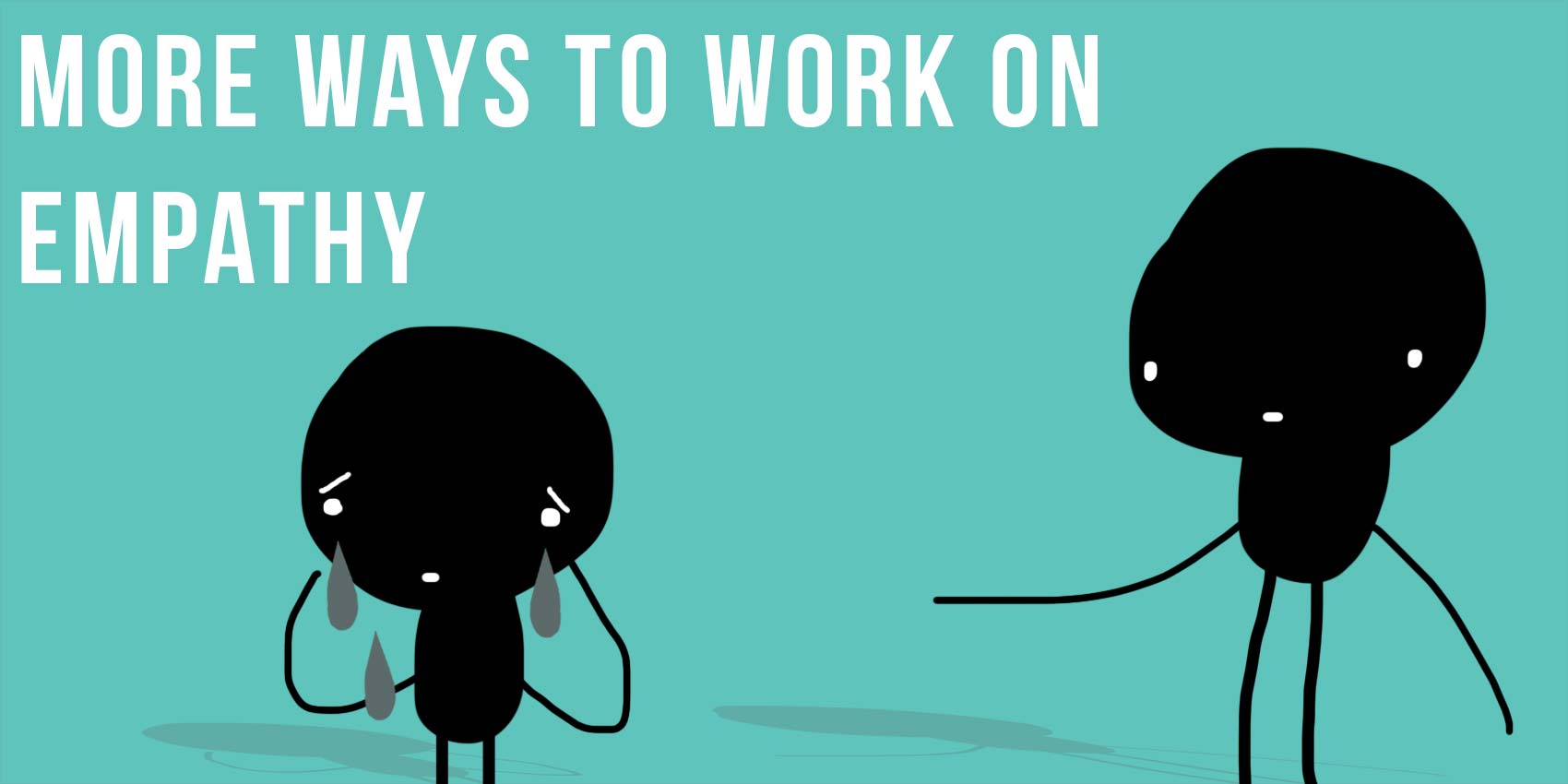14 Jan More ways to work on empathy

Here are a few additional ways to increase your empathy:
Connect IN PERSON with people! In today’s digital world, we often do not give our mirror neurons an opportunity to fire: texting, emailing and posting items on social pages do not increase our sense of connections at a neural level—in a way that brings us together to strengthen our sense of humanity. Digital communication lacks eye contact, facial expression and tone of voice—all of which normally promote connection (positive or negative). As such, one way to increase your capacity for empathy, is to practice face to face (ichat, skype, facetime) and in person communication. Even (gasp!) having a good old fashioned phone conversation creates more connections than a digital one.

DID YOU KNOW? More than three hours of device use a day is associated with an increase risk of suicide. Some researchers suggest that this is due to a decrease in face to face interactions which tend to buffer people from depression and loneliness.
(Source: https://www.npr.org/2017/12/17/571443683/the-call-in-teens-and-depression.)
Another way to work on empathy is through mindfulness and meditation:
“Many studies have shown that mindfulness meditation that includes LKM (loving-kindness meditation) can rewire your brain. Practicing LKM is easy. All you have to do is take a few minutes everyday to sit quietly and systematically send loving and compassionate thoughts to: 1) Family and friends. 2) Someone with whom you have tension or a conflict. 3) Strangers around the world who are suffering. 4) Self-compassion, forgiveness and self-love to yourself.”
(Source: http://www.psychologytoday.com/blog/the-athletes-way/201310/the-neuroscience-empathy)
As another example of a loving kindness meditation, Jack Kornfield, considered an authority on meditation, suggests repeating these phrases, “May I be filled with lovingkindness. May I be safe from inner and outer dangers. May I be well in body and mind. May I be at ease and happy.” Practicing this on a regular basis can help increase your empathy.
(Source: https://jackkornfield.com/meditation-lovingkindness/)
In fact, countless studies have been done to prove the benefits of mindfulness and meditation. From better cognitive functioning (read: doing better in school) to healing mood disorders, practicing mindfulness and meditation has significant positive influences that also boost empathy, for yourself and for others.

DID YOU KNOW? A study led by Barbara Fredrickson at the University of North Carolina found that a 7 week meditation practice not only decreased depressive symptoms but also decreased participants bias towards other people. Being less biased can help you be more empathic.
(Source :https://www.ncbi.nlm.nih.gov/pubmed/18954193)
Give back – Helping others is one of the most effective ways to increase your connections with those around you and foster your compassion for others [a close cousin to empathy and an effective strategy for boosting your self esteem! (Source: Scientific American Mind, Sept/Oct. 2013, page 32)]. In fact, doing a kindness for another person is the single most reliable factor in increasing your sense of happiness! What does that mean exactly? It means that when you help another person, your happiness increases more than if you had done something like, buy yourself a gift or eat a favorite food or play a game (Martin Seligman, Flourish, Atria Books, 2012).
So if you feel like you need a little boost in confidence and empathy, go volunteer to help someone (or even animals!).

DID YOU KNOW? Being nice at any age seems to have its benefits. During childhood, when we behave kindly by cooperating or sharing or consoling each other, in later life we are more successful academically. As a preteen, “performing acts of kindness may boost happiness and popularity – and reduce the chances of being bullied.” In adulthood, spending money on other people is a greater predictor of happiness than spending money on oneself.
(Source: Scientific American Mind, September/October 2013, page 8)
Facing hardship yourself helps you empathize with others who are going through difficult times. When life is all sunshine and roses, it’s difficult to imagine what people who face hardship are feeling. So challenge yourself to something new, different, maybe even grueling to see what exerting yourself, and maybe even failing, might feel like. Failure is a growth experience and through it we learn so much about ourselves and we gain the capacity to understand other people’s pain and triumphs.
For people who struggle to experience empathy, although these exercises would be beneficial, a more direct and focused approach might be more needed. People with large deficits empathy can build their skills through therapeutic interventions such as Cognitive Behavioral Therapy (CBT). In CBT, individuals are instructed to become more aware of their thoughts and to change negative thinking patterns to more beneficial ones. Behavior is also targeted.
For example, for someone who is lacking empathy, CBT might focus on challenging negative thoughts such as That person deserves to be hurt – she’s a loser! This thought process involves name calling, which dehumanizes people. As a result, someone in CBT would be asked to change such thoughts whenever they occur: No one deserves to be hurt. Then, to alter behaviors, the individual in CBT might be challenged to ask the person his/her name, make eye-contact and, in time, to offer help in some way.




Post Question:
How will you work on your empathy?
Answer the post question here
What's being said